Kitchens are practical spaces, but often we have too many things taking up storage and countertop space, which makes cooking on a daily basis more difficult. These 19 things should be thrown out or donated to reclaim your space and make it work for you.
Expired Spices
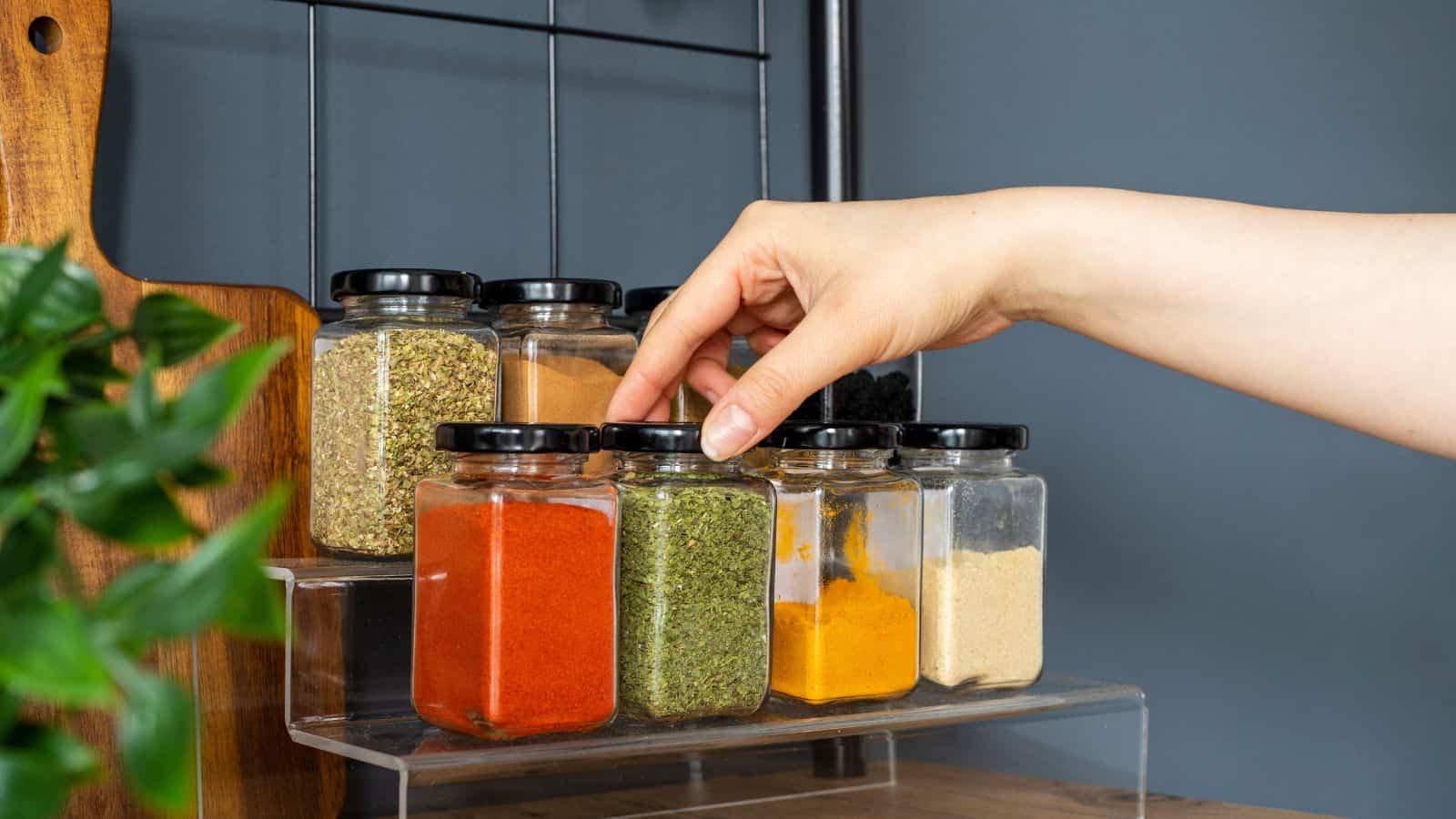
According to Healthline, “Dried herbs and spices may last 1–4 years, but it depends on the type of spice and how it’s processed and stored.” Every now and again, you should check through your spices, looking out for faded colors or a lack of aroma.
Chipped or Cracked Dishes
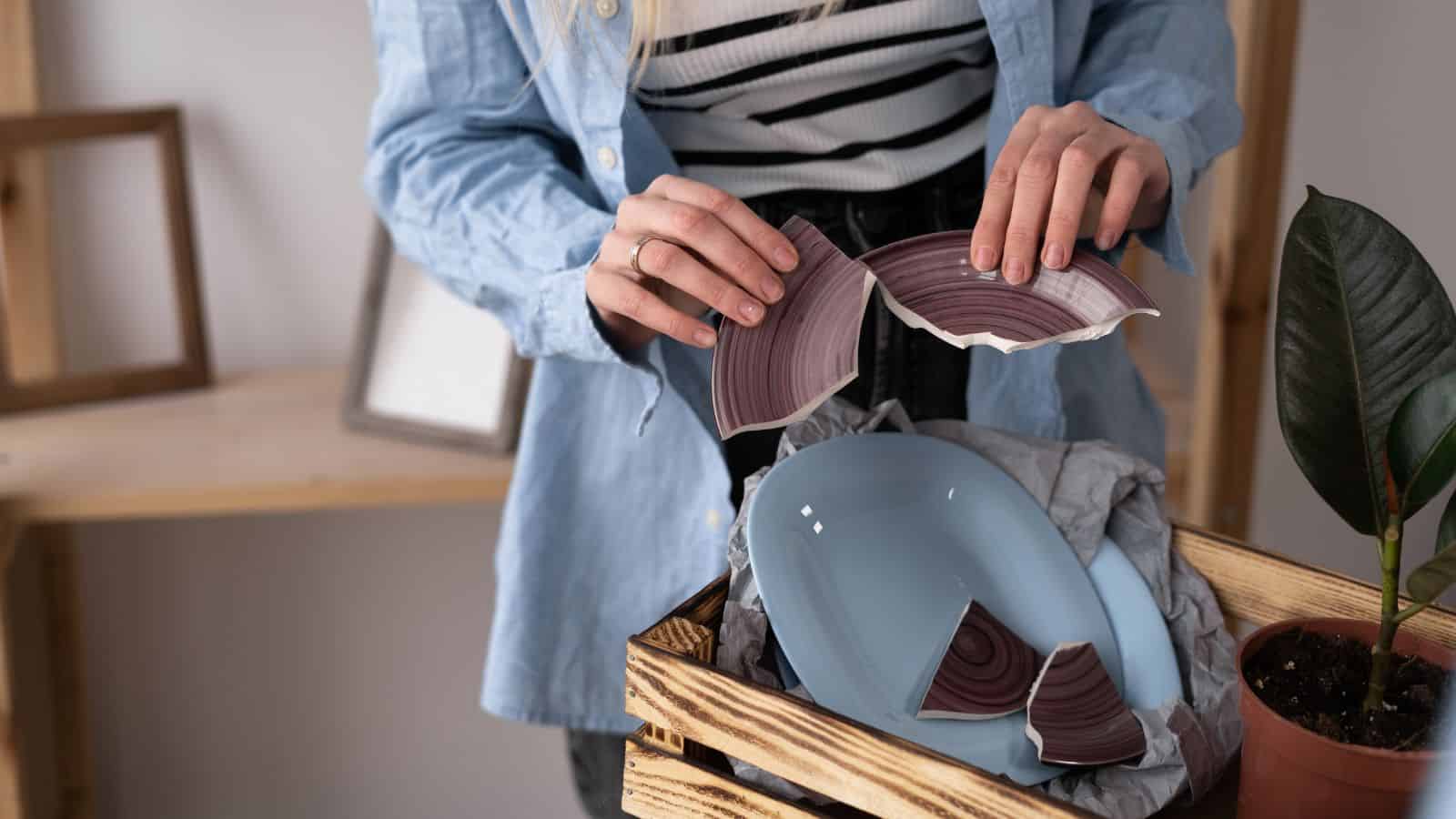
As well as not looking as nice as they once did, cracks or chips in damaged dishes can harbor bacteria, which are very tricky to clean. Over time, this could increase your risk of foodborne illnesses. Make sure you dispose of these items safely and wrap any sharp edges in newspaper.
Non-stick Pans with Scratches
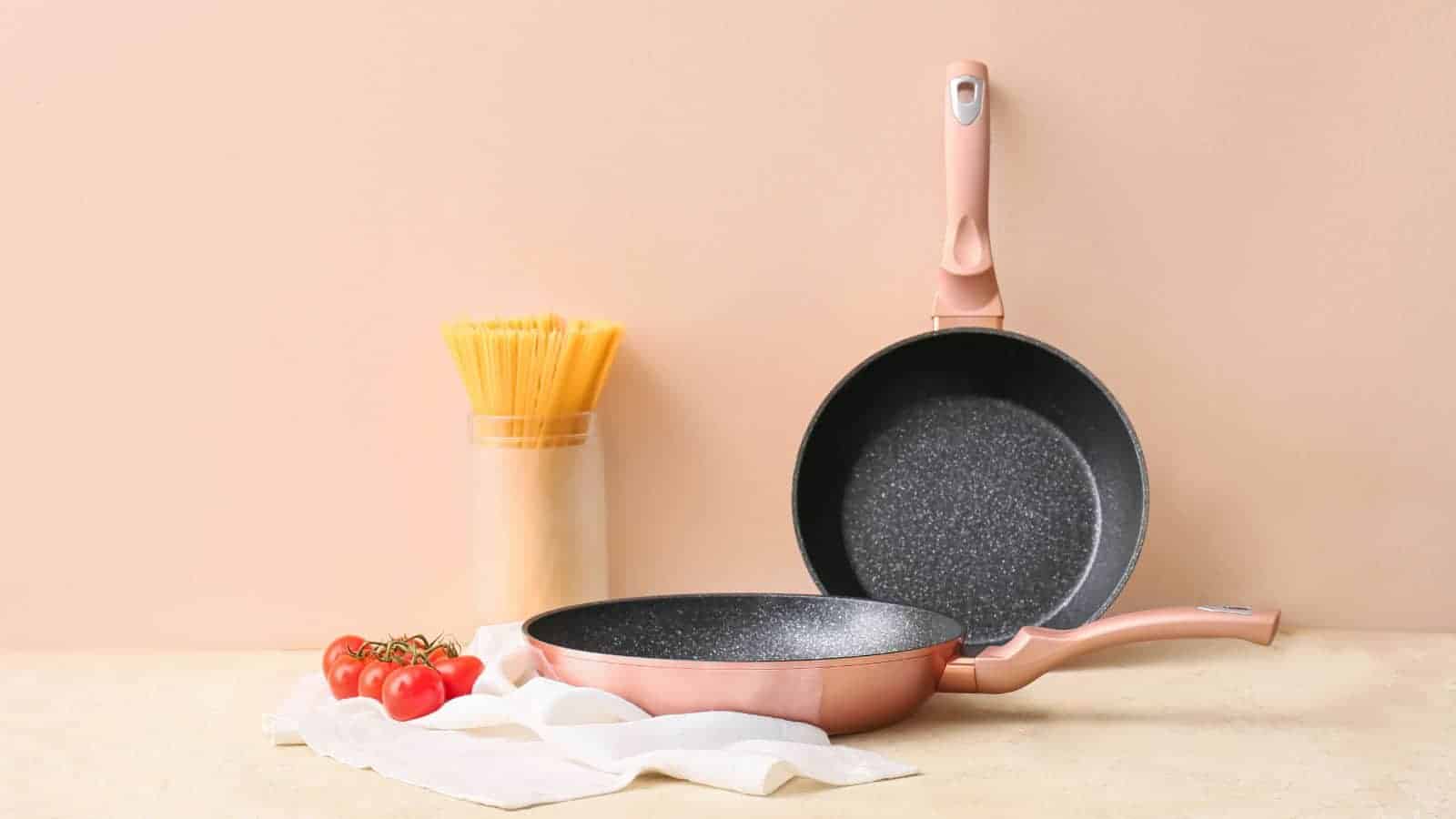
If non-stick surfaces become scratched, they can release harmful chemicals, such as PFOA, into your food. On top of this, the scratches mean that food will often start to stick to the surface, which makes cooking and cleaning a lot harder. Try to replace these items with high-quality alternatives, such as stainless steel or cast iron.
Dull Knives
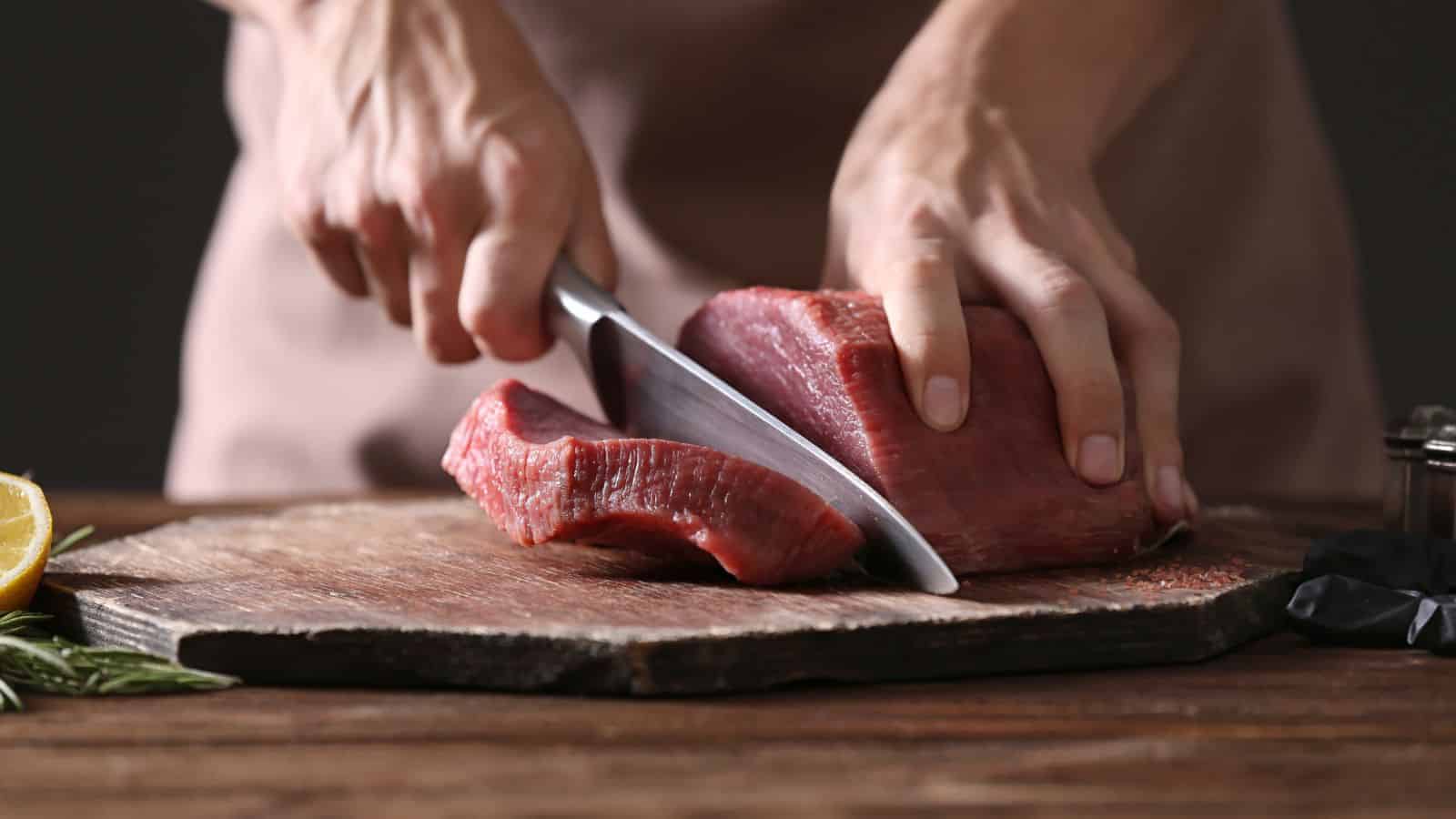
When knives get dull, they make slicing and chopping foods more difficult, which slows down your cooking time. Food & Wine says, “With a dull knife, you need to press harder, upping the probability of a slip and increasing the chances that you’ll injure yourself or make a mistake.”
Old Plastic Containers
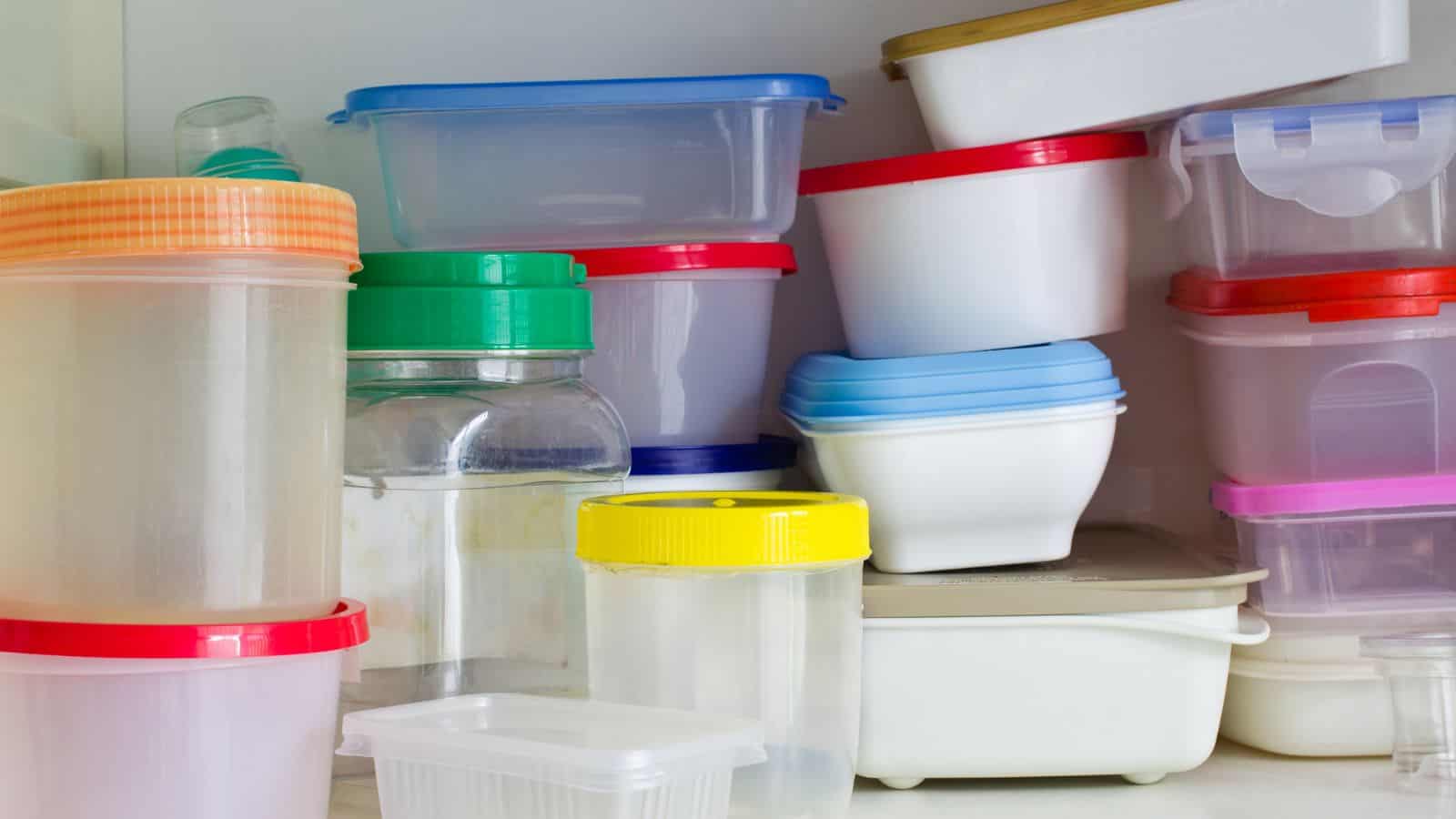
Older plastic containers can start to leach chemicals into your food, especially when heated. It’s best to avoid microwaving these items and wash them by hand rather than using a dishwasher, and if you can, try to replace them with glass or BPA-free containers.
Old or Worn-out Dish Towels
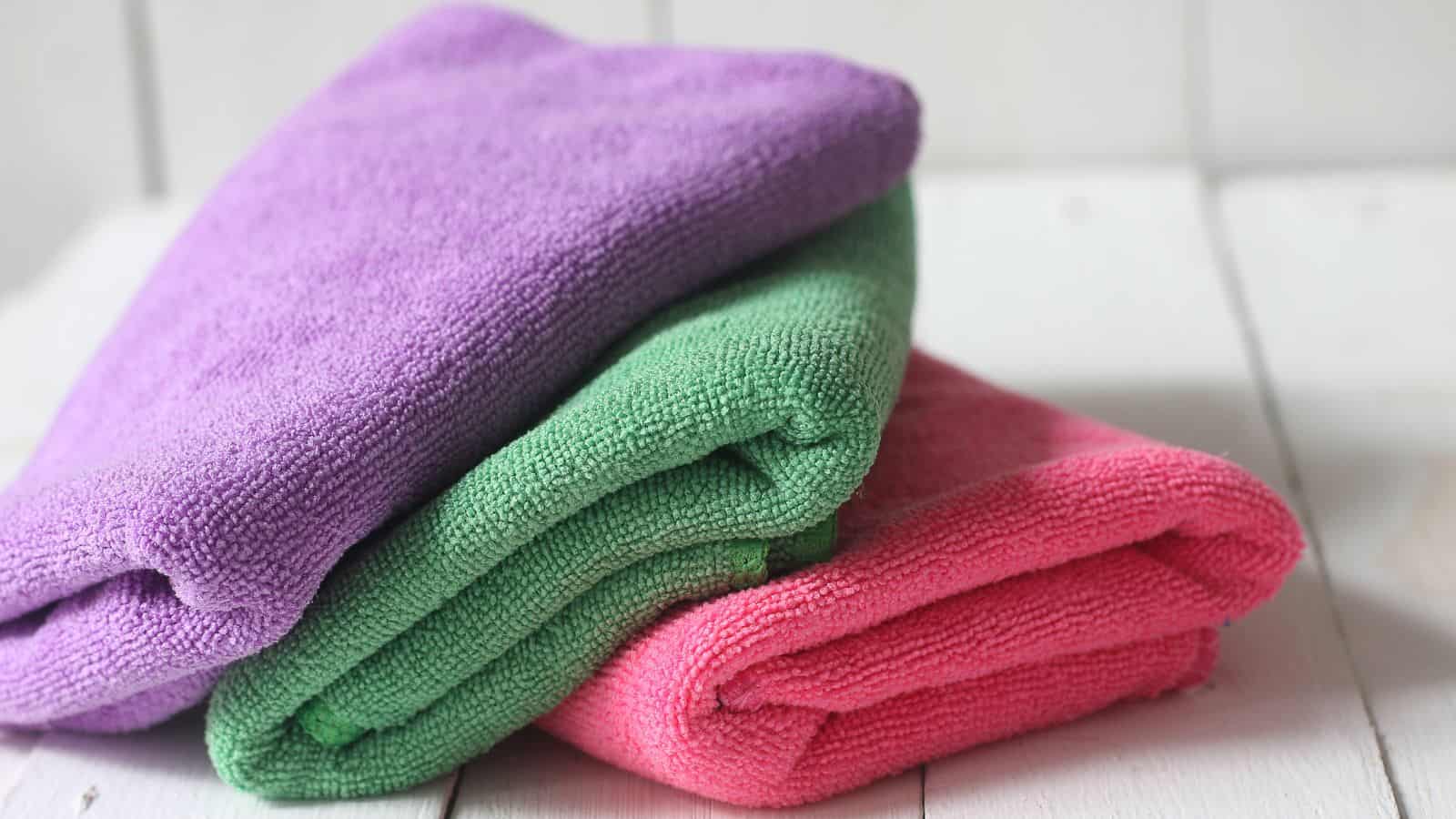
Dish towels can harbor bacteria, especially if they stay damp for long periods of time. You don’t want to dry your dishes with towels that spread bacteria, plus, as they age, they’re likely to lose their absorbency, making them much less effective.
Broken or Unused Small Appliances
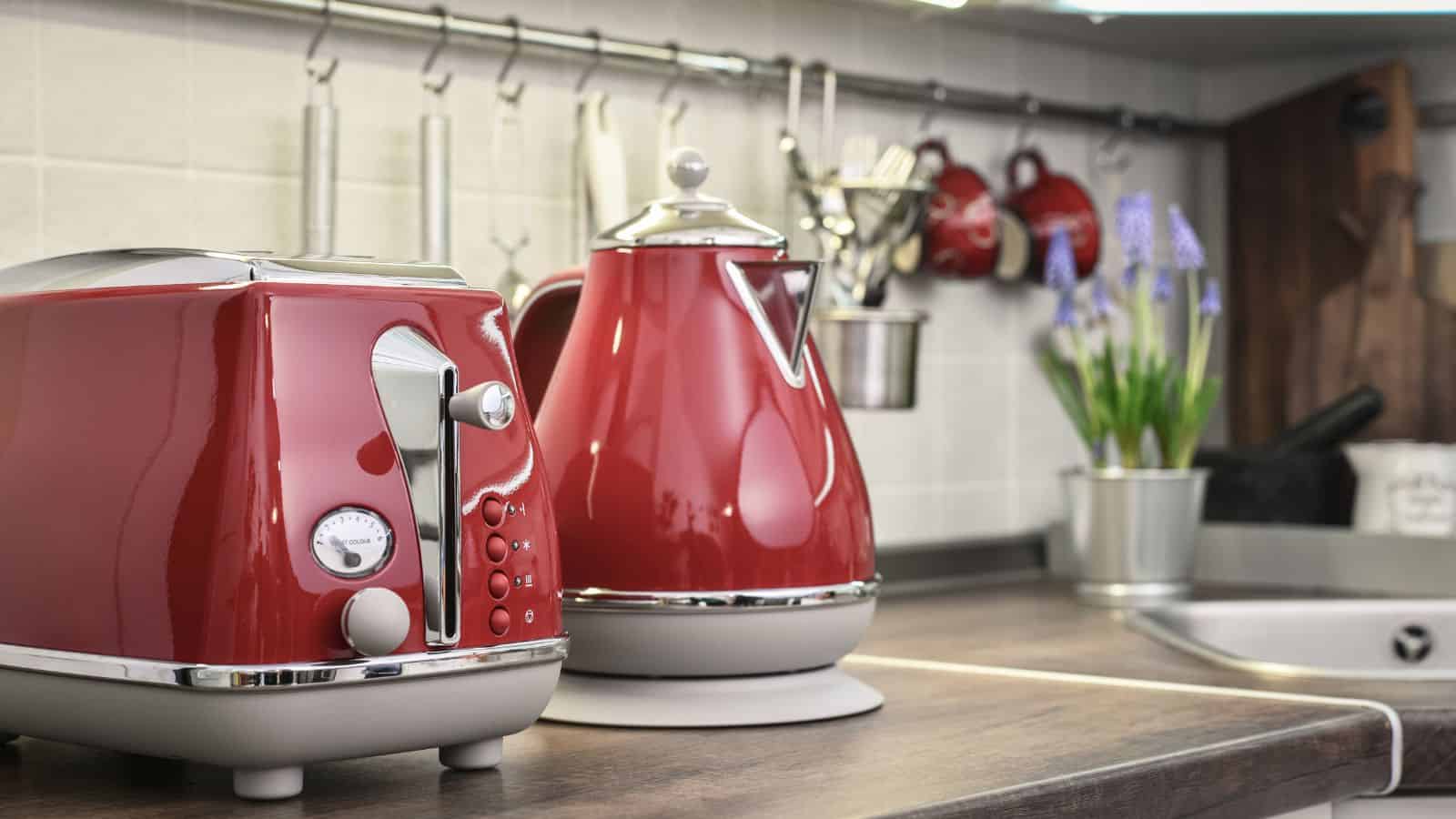
Broken or unused appliances take up valuable countertop or storage space and clutter your kitchen. Appliances that are damaged can also increase the risk of a fire or electric shock in your home, so you’re best off throwing them out for your family’s safety.
Expired Canned Goods
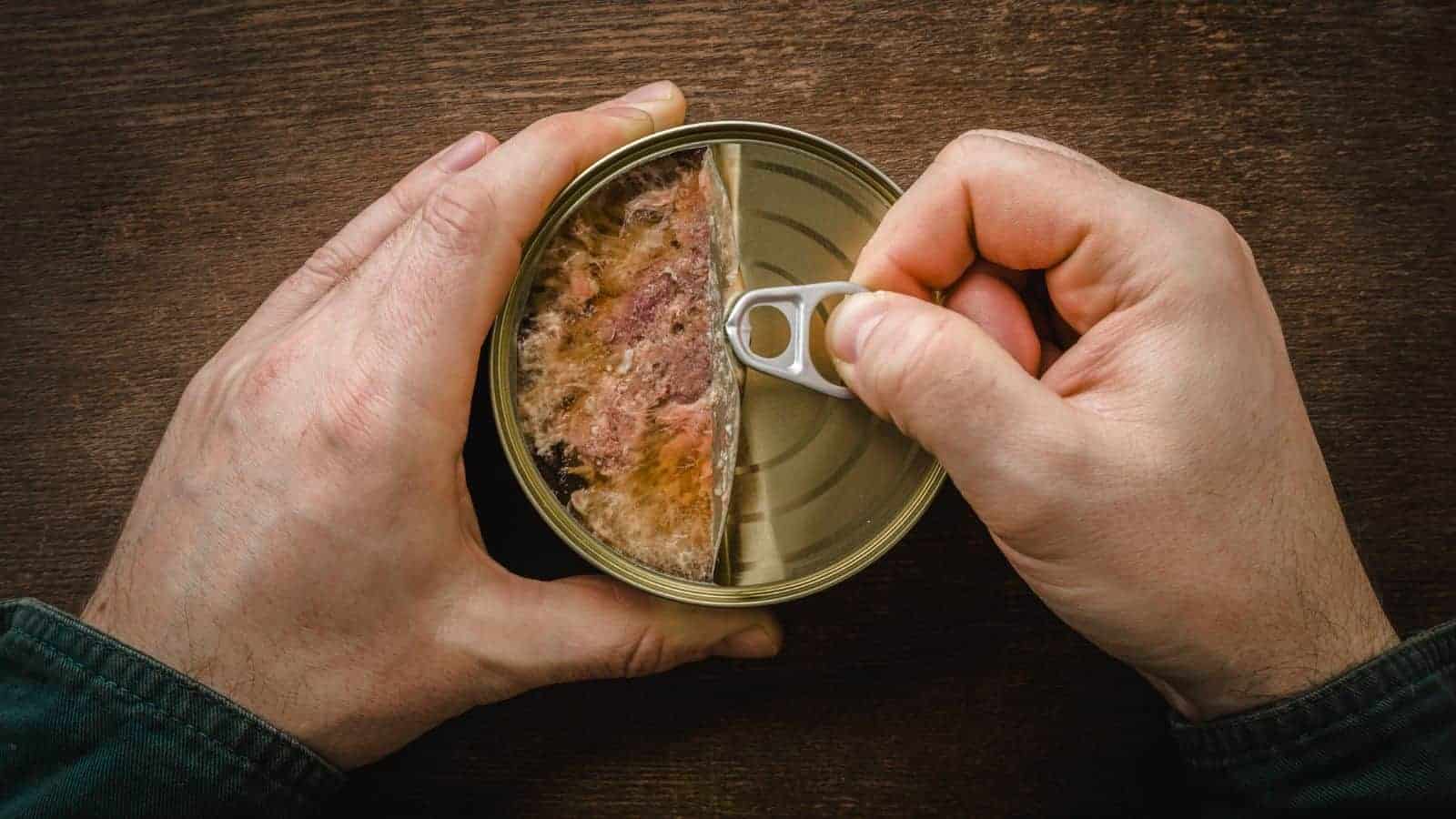
Consuming expired canned foods can lead to serious health risks, such as botulism. The USDA suggests that you discard “containers that show possible ‘botulism’ warnings: leaking, bulging, or badly dented cans; cracked jars or jars with loose or bulging lids; canned food with a foul odor; or any container that spurts liquid when opening.”
Excessive Plastic Bags
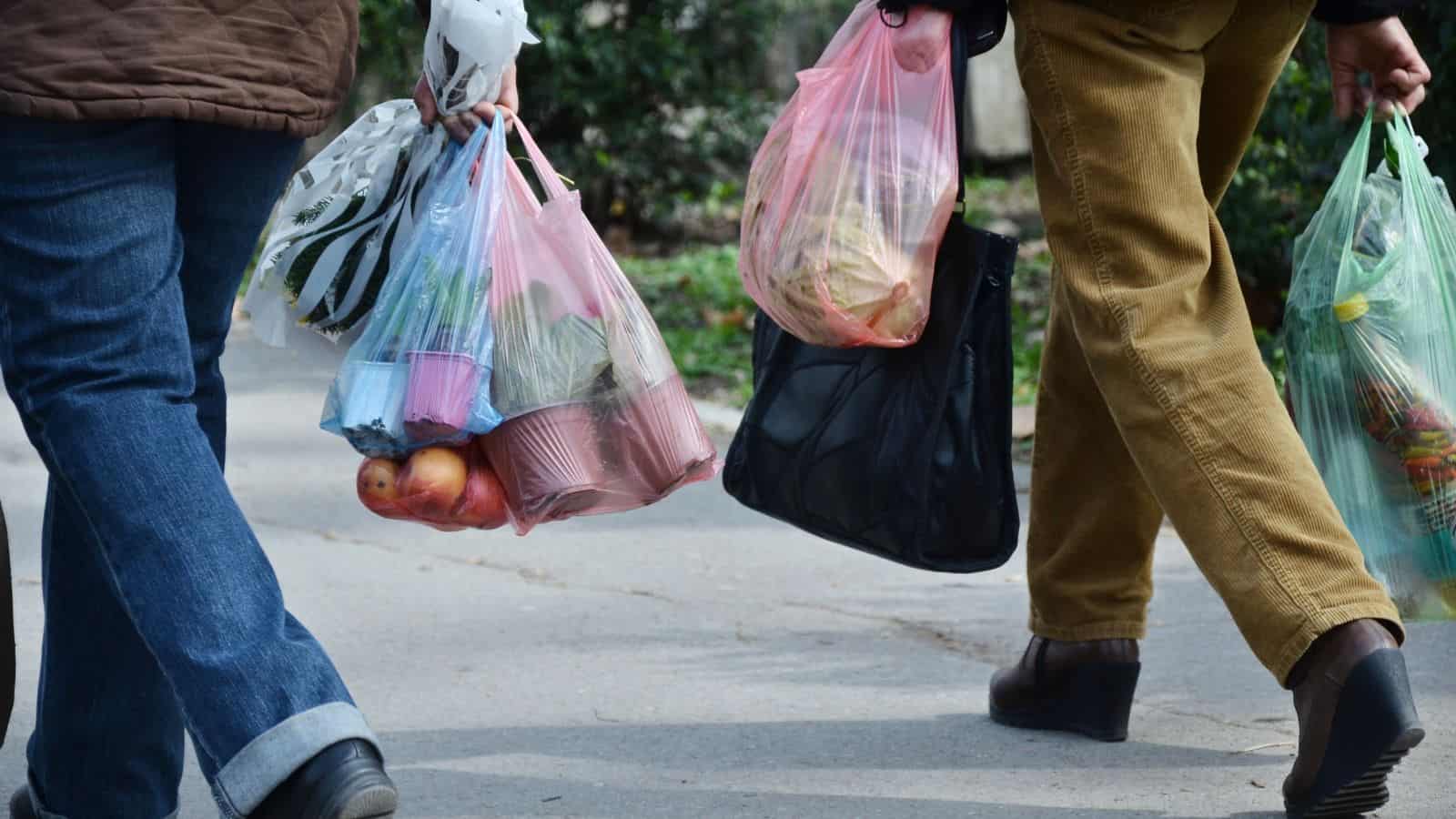
It’s easy to quickly build up a large collection of plastic bags, but they are hard to organize and create a lot of clutter in your kitchen. By switching to cloth or mesh bags that you can reuse time and time again, you reduce your impact on the environment, and they’re easier to fold into a small storage space.
Outdated Cookbooks

Maybe the recipes no longer match your dietary needs, or you simply know them by heart; either way, there’s no need to hang on to books you don’t reach for as they take up a lot of space. Consider gifting them to friends, donating them to thrift stores, or taking them to your local library.
Worn-out Cutting Boards
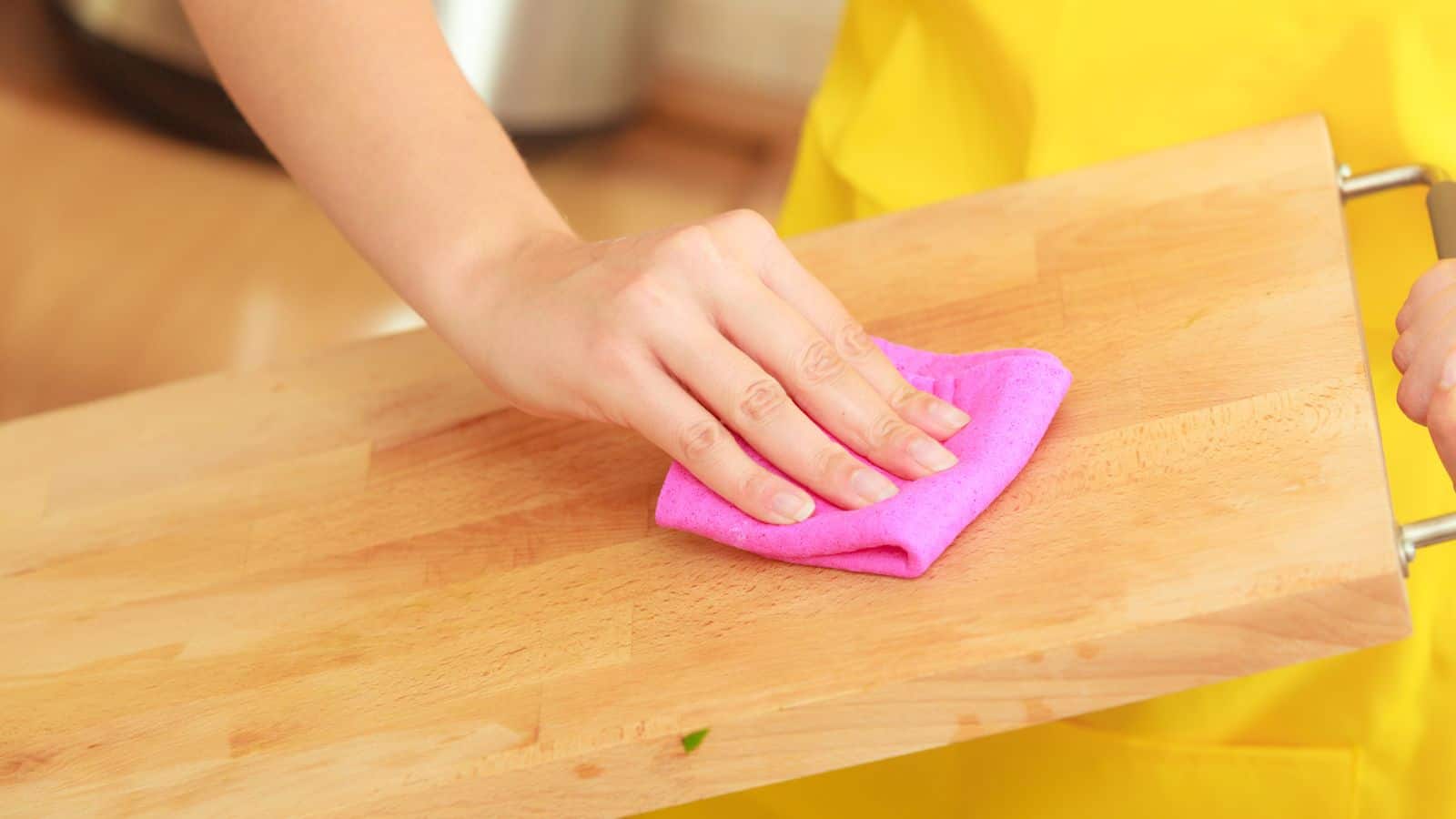
Deep cuts in chopping boards are tricky to clean, and therefore they can start to harbor bacteria that could make you ill. As chopping boards get older, they can also become slippery, which increases your chance of cutting yourself accidentally, so it’s a good idea to replace them.
Unused Gadgets

Kitchen drawers can become easily cluttered, making it hard to find the tool you need. Most of the time, it’s not necessary to have specific kitchen gadgets, as a range of simple utensils will be able to do most of the things you need. Try to go through and think about how often you use each item, donating anything that rarely gets used.
Rusty Baking Sheets
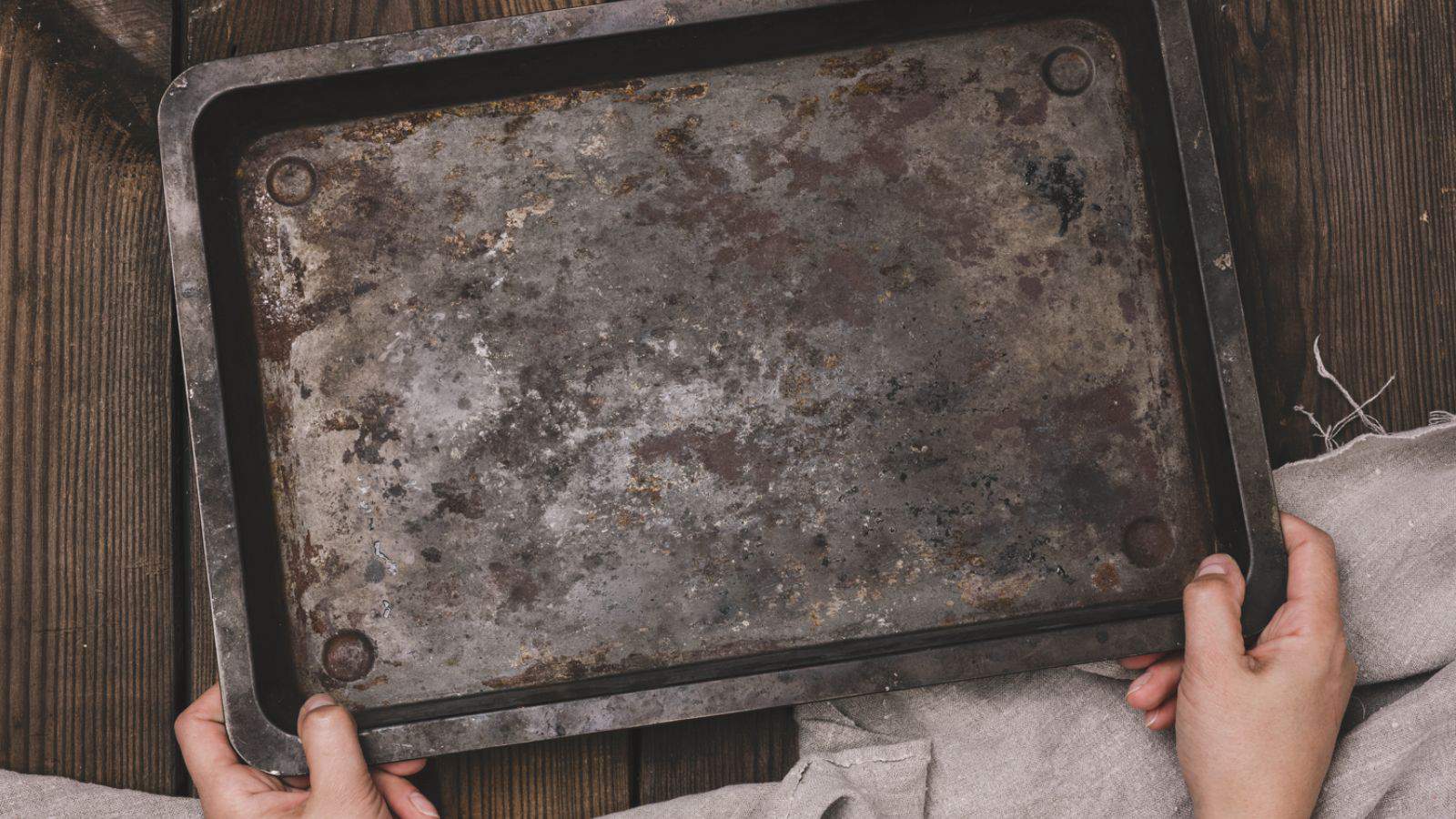
Rust from old baking sheets can flake off during cooking and get into your food, which can lead to health risks. They are also likely to heat unevenly, which will impact the results you get from cooking. It’s important to look after baking sheets by washing and drying them thoroughly after each use.
Old Sponges
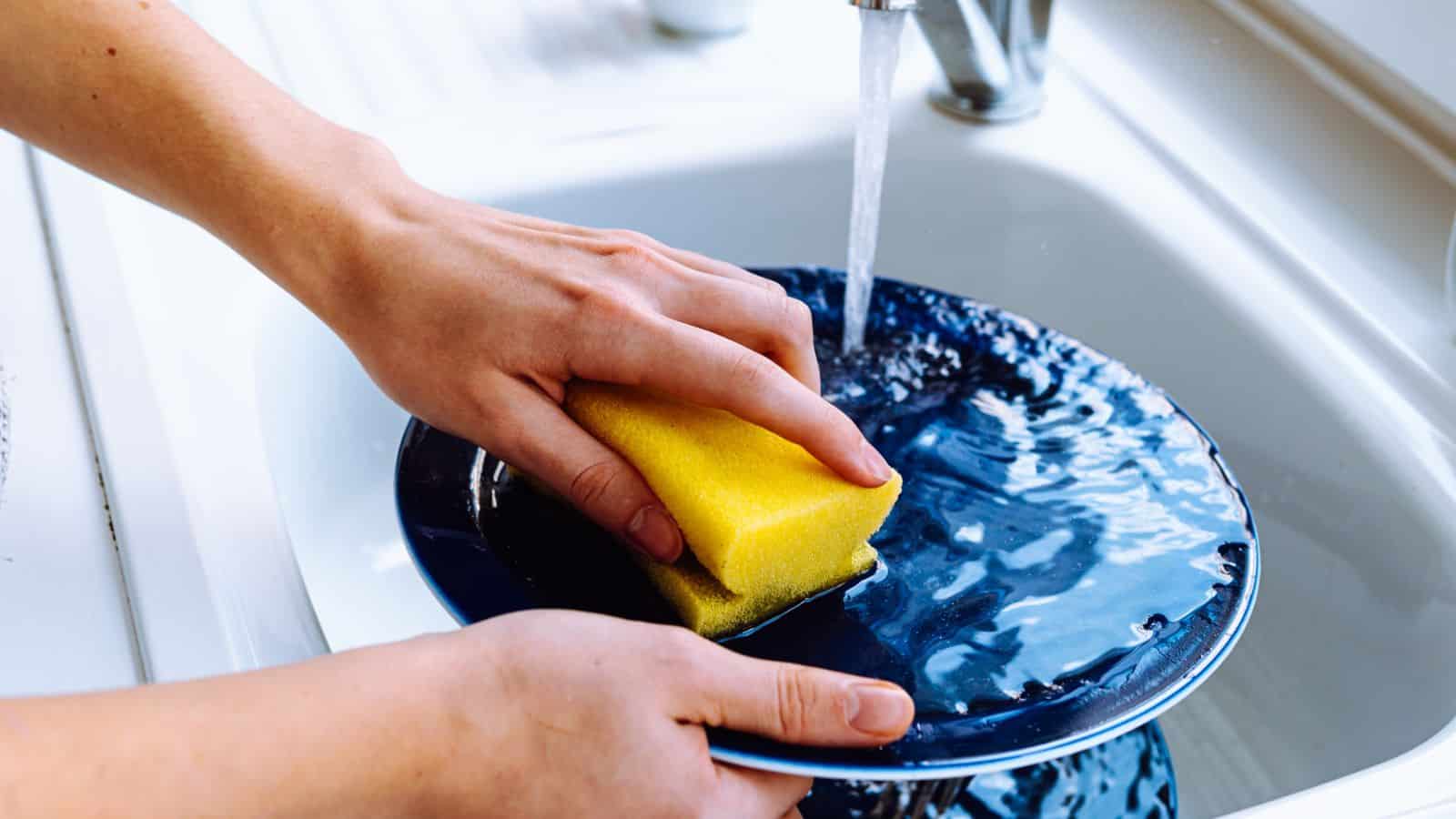
In a study reported by Livestrong, “in samples from 14 sponges, researchers identified 362 different types of bacteria. The only other place with this much bacteria is the human intestinal tract.” You should replace your sponges every 1–2 weeks and disinfect them regularly by boiling or microwaving.
Expired Cleaning Supplies

Cleaning products tend to lose their effectiveness after a while, so it’s a good idea to keep an eye on the expiration dates of each of your products. If you need to dispose of a product, make sure you follow local guidelines to ensure you don’t cause damage to the environment.
Worn-out Oven Mitts
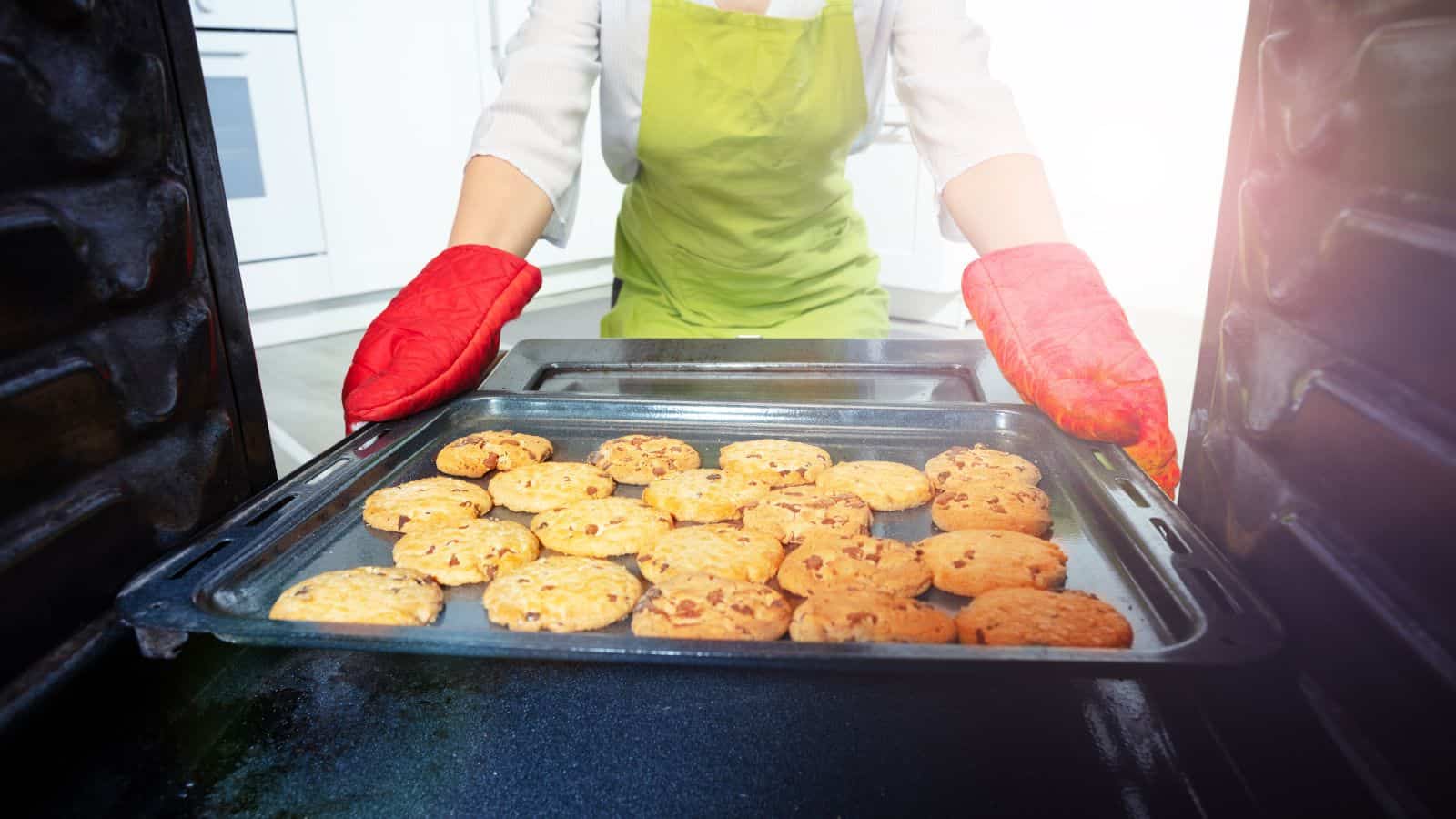
Well-worn oven mitts can increase the risk of burns, as the fabric will become thinner and may tear. The absorbent nature of the mitts can mean they harbor bacteria, so you need to clean them regularly. When it’s time to replace them, choose a good quality, heat-resistant material.
Old Water Filters
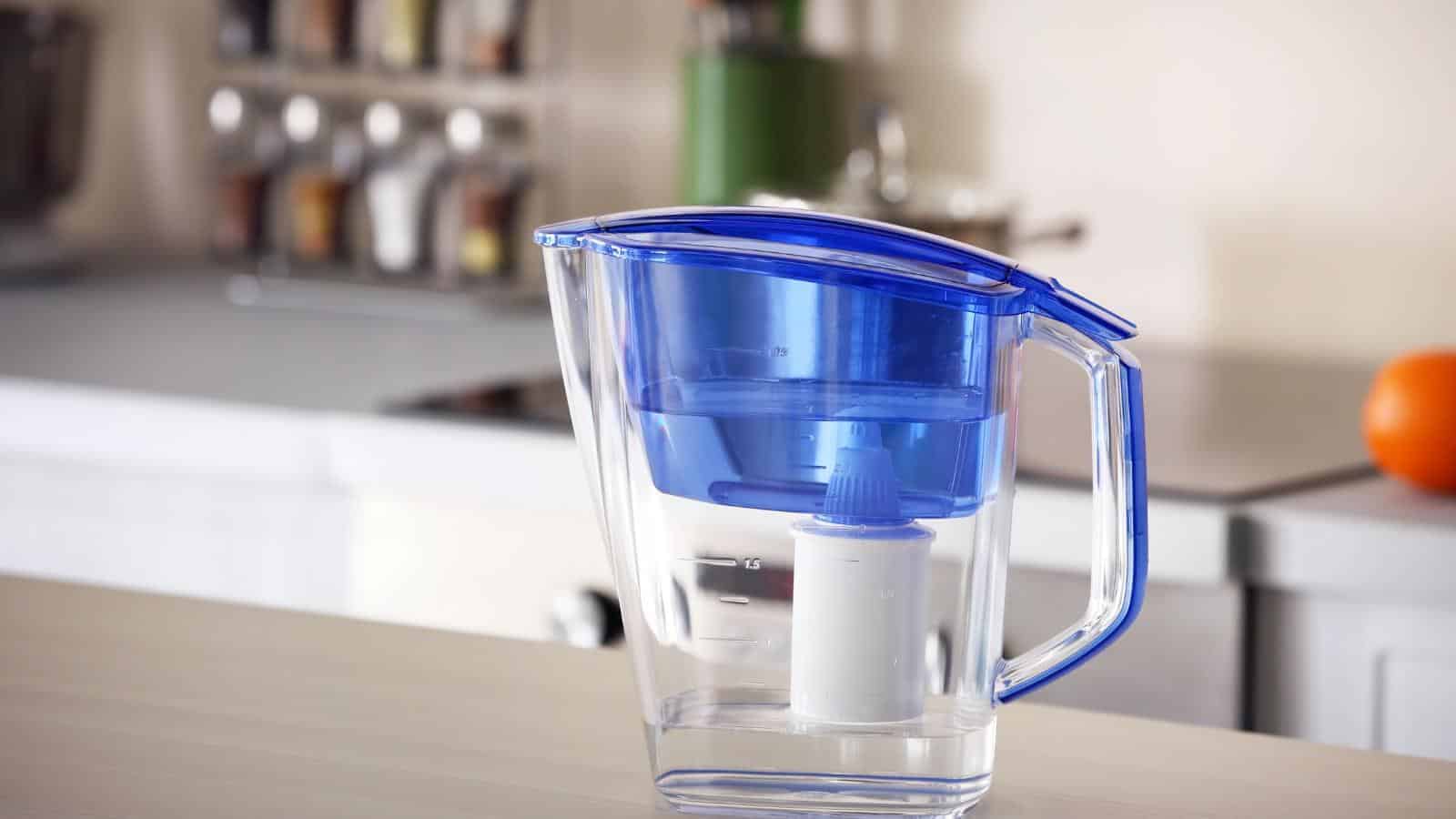
After filters expire, they might become less effective at removing the impurities from your water that you don’t want to drink. They can also become breeding grounds for bacteria, so it’s really important to follow the guidelines set out by the manufacturer to ensure you stay safe.
Warped Plastic Utensils
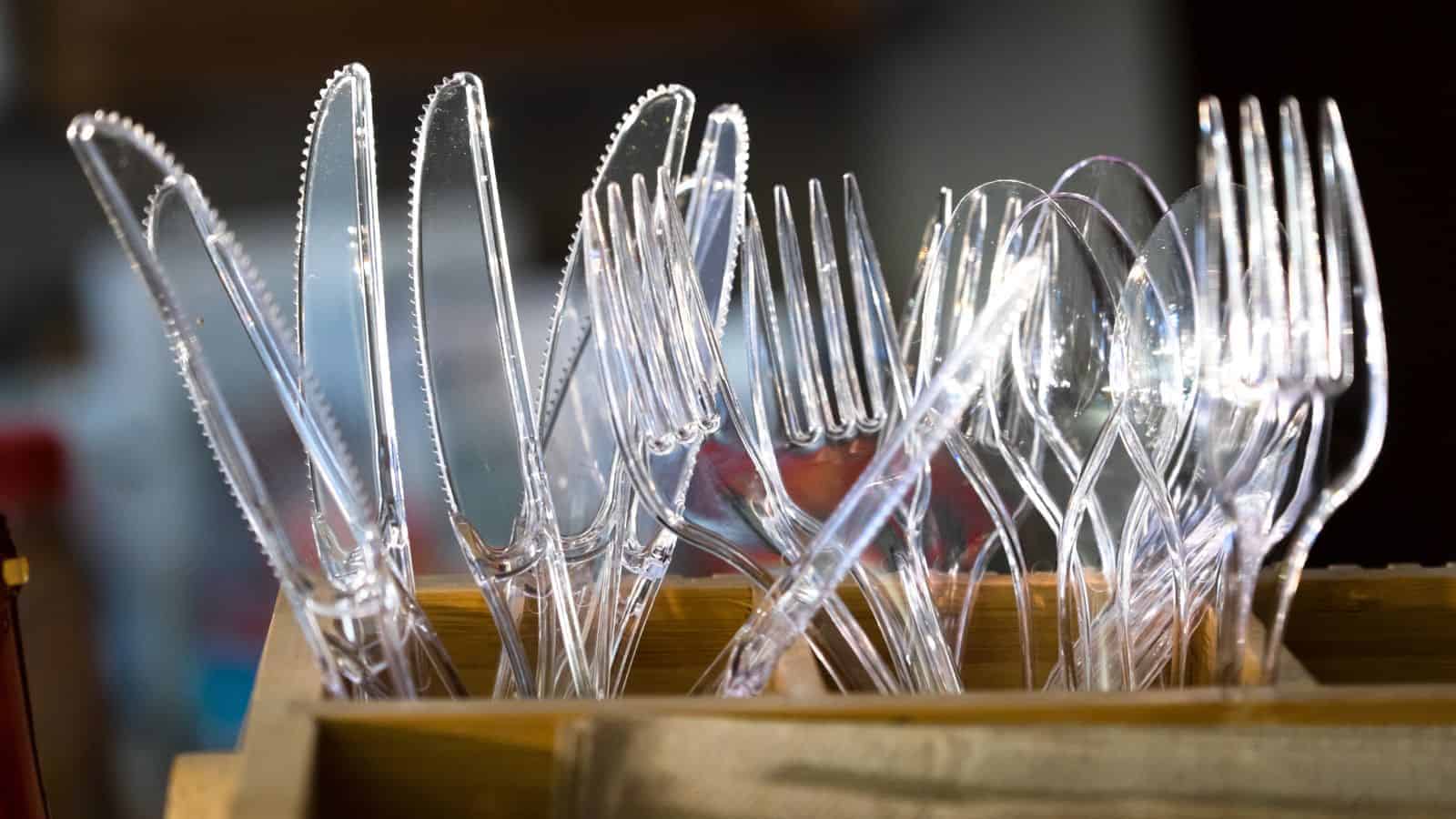
If your plastic utensils start to warp, they can release harmful chemicals into your food, which could cause health risks. They could also become dangerous to use in hot pots as they may break or bend, increasing your chance of burning yourself.
Expired Condiments
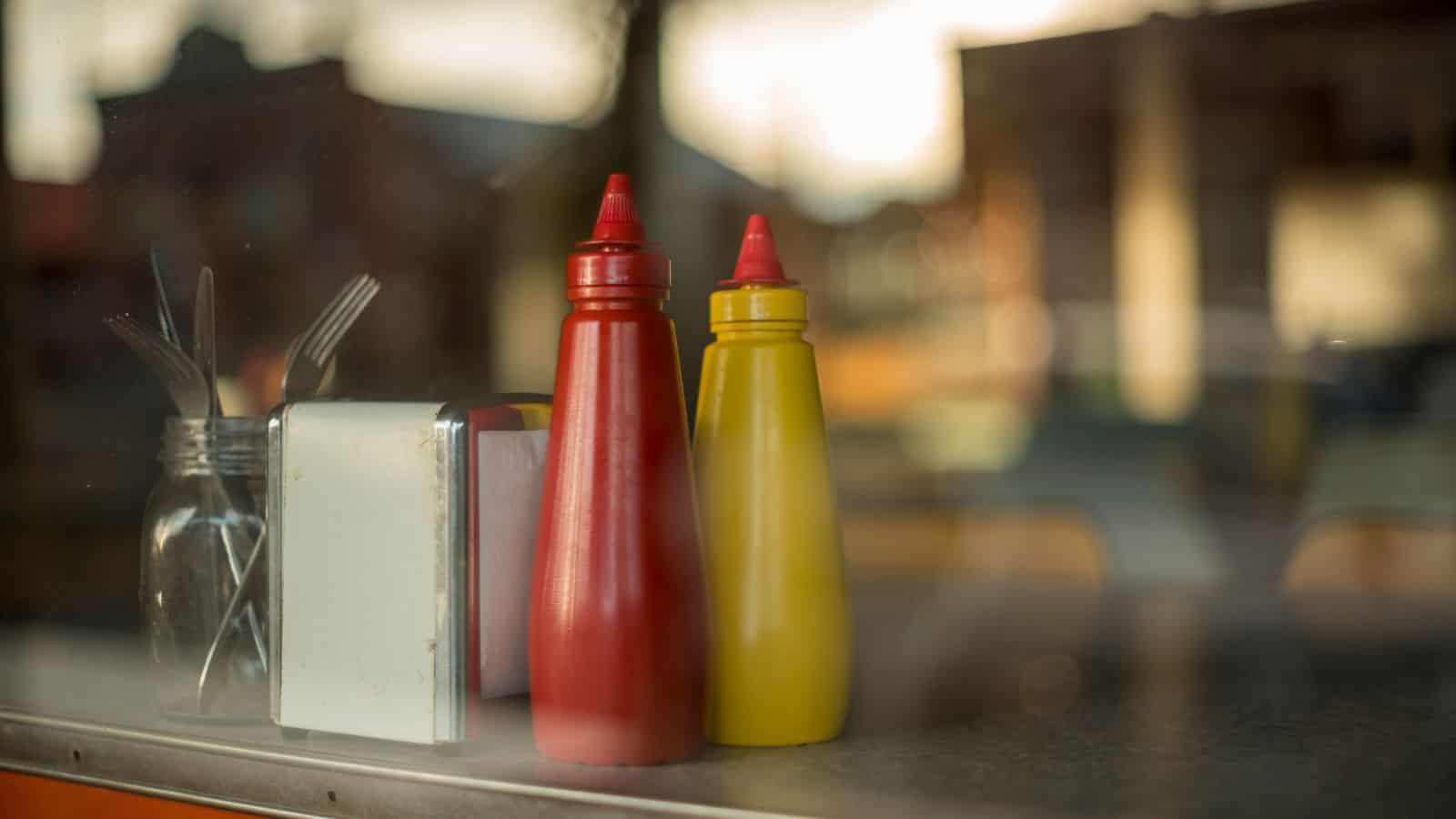
Condiments can easily build up in the fridge, but it’s important to use them within their recommended time to make sure you don’t get ill from the bacteria inside them. They’ll also lose their flavor and consistency over time, so they won’t taste as good as they did when they were fresh.
Up Next: 17 Behaviors That Make People Think Less of You

If you want to be accepted by those around you, you have to behave in certain ways. Obviously, you should still be yourself, but there are certain social ‘rules’ people should abide by, like avoiding these 17 behaviors that make people think less of you.
17 BEHAVIORS THAT MAKE PEOPLE THINK LESS OF YOU
20 Signs Someone Is Only Pretending to Care

Whether it’s to avoid hurting your feelings or if it’s part of a more elaborate plan to deceive you for benefits, people pretend for many reasons. The main theme with them, though, is that their actions never match the sugar-coated words that come out of their mouths. So that you don’t fall for someone like this, we’ve compiled 20 signs for you to look out for.
20 SIGNS SOMEONE IS ONLY PRETENDING TO CARE
18 Items at Walmart that Aren’t Worth Your Hard-Earned Money

For many of us, Walmart is the go-to superstore. Whether we need groceries, clothing, or technology, Walmart is a one-stop shop for everything you would need. However, there are some Walmart products you should avoid at all costs, such as the following 18 examples.
18 ITEMS AT WALMART THAT AREN’T WORTH YOUR HARD-EARNED MONEY
